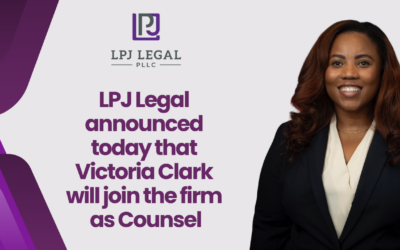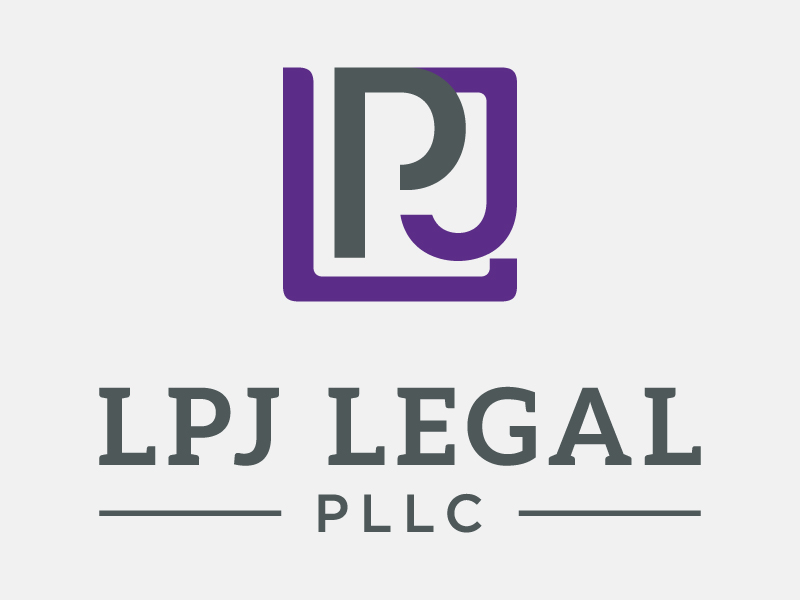Learn how to foreign qualify and obtain a certificate of good standing.
Congratulations! Your business is expanding beyond your home state. Whether that looks like hiring full-time employees across state lines, engaging customers at a storefront, or purchasing a small office for remote employees to gather, for companies considering growth into the collective DMV region—comprising Washington, D.C., Maryland, and Virginia—understanding this legal hurdle is essential to smooth expansion.
This article will:
- Outline the formal process of expanding your business into a new state, including an explanation of a certificate of good standing, foreign qualification, and the sales tax nexus.
- Clarify what business activities require you to formally register in a new state, versus which ones allow you to legally operate across state lines.
New to LPJ Legal? We’re a dedicated group of experienced and highly credible legal professionals, proudly representing clients both locally and internationally with domestic offices in D.C., Maryland, Virginia, and Georgia. At LPJ Legal, we believe that a law firm should be more than a legal resource; it should be a trusted partner. Our team is committed to safeguarding our clients’ businesses, properties, and futures, providing powerful legal insights to help ensure their success. To become a business client, visit the LPJ Legal website, or call us directly at 202-643-6211.
To Expand Your Business into Another State, Be Familiar with These 3 Processes:
1. Foreign Qualification
What It Is: Foreign qualification is the legal process where a business registers to operate in a state other than its original formation state. “Foreign” in this context simply means “out-of-state,” not international.
When You Need It: You typically need to foreign qualify if you are doing business in another state in a way that requires registration. Common triggers for foreign qualification include:
- Opening a physical office, warehouse, or store in the new state.
- Hiring employees who work in the new state (especially if they are not remote).
- Regularly conducting in-person business, such as meeting clients or fulfilling contracts.
- Holding property (real estate, leased office space, etc.) in the new state.
How to Foreign Qualify:
- Check state requirements – Each state defines “doing business” differently, so research or consult with a lawyer to determine if you need to register.
- File a Certificate of Authority – This legal document will be submitted to the foreign state’s Secretary of State, allowing your business to operate there.
- Obtain a Registered Agent – Identify a local registered agent to receive legal documents on behalf of your business in that state.
Pay Fees & Renew Annually – Most states require initial and ongoing fees to maintain foreign qualification.
2. Certificate of Good Standing
What It Is: A Certificate of Good Standing (or Certificate of Existence/Status) is an official document from your home state confirming that your business is legally registered and compliant with state regulations.
Why You Need It for Expansion: Most states require a Certificate of Good Standing when you apply for foreign qualification. It proves that your business:
- Has paid all necessary fees and taxes.
- Is up-to-date with required filings (like annual reports).
- Is legally authorized to conduct business.
How to Obtain A Certificate of Good Standing:
Request a certificate of good standing from the Secretary of State where your business was originally formed. After requesting you’ll have to pay the required fee (which varies by state). Ensure your business is compliant before requesting, as unresolved issues (like unpaid fees or missing filings) can prevent issuance.
3. Sales Tax Nexus
What It Is: Sales tax nexus refers to a business’s obligation to collect and remit sales tax in a state due to having a sufficient connection to that state.
When You Have Sales Tax Nexus: You may be required to collect sales tax in a new state if you:
How to Comply with your Sales Tax Nexus.
- Determine if your business meets the sales tax nexus threshold in the new state.
- Register for a sales tax permit with the state’s revenue department.
- Collect and remit sales tax on applicable transactions.
- File periodic sales tax returns as required by state law.
Chocolates & Grahams: When Business Expansion Requires Registration
Not every out-of-state business activity requires registration in a new state. Learn the difference with the following example:
Interstate Commerce or Online Sales: No Registration
Chocolates & Grahams is a sweets shop physically located in Washington, D.C., that ships goods across the DMV. When customers purchase goods online and have them shipped across state lines, Chocolates & Grahams is not required to register to do business in those states. Many states recognize that interstate commerce in this manner does not constitute “doing business” in a way that triggers local registration requirements.
Hiring a 1099 Contractor in Another State: No Registration
Chocolates & Grahams hires three independent contractors to help with weekend orders. The contractors live outside of Washington, D.C. Since they are independent contractors rather than employees, Chocolates & Grahams does not have to register in the states where the contractors reside.
Establishing a Physical Presence in Another State: Foreign Qualify
Business is booming! Chocolates & Grahams is looking to build a brick-and-mortar location in Virginia to support its growing customer base. Establishing a physical presence in another state—such as a storefront or office—requires the company to file for foreign qualification with the state of Virginia. This ensures compliance with state-specific regulations, including tax and reporting obligations.
Hiring an In-Person W-2 Employee in Another State: Sales Tax Nexus
To run its new store, Chocolates & Grahams hires two full-time W-2 employees. Just like opening a physical storefront, hiring W-2 employees in another state creates a taxable nexus, requiring business registration and compliance with local employment laws. Similarly, if Chocolates & Grahams hired Maryland-based employees to work at its D.C. office, the company would still need to comply with Maryland employment laws, including tax withholdings and wage regulations.
Hiring a Virtual W-2 Employee in Another State: You May Need to Foreign Qualify
If Chocolates & Grahams hires a remote W-2 employee who works from home in New York—but the business has no other operations in the state (such as a physical office or regular in-person client work)—the company may not need to register as a foreign entity in New York. However, if the employee engages in significant in-state work beyond remote duties (e.g., handling local sales, attending in-person meetings, or regularly working with clients in New York), the business may need to register with the state and comply with local employment laws.
QUOTE: Let the attorneys at LPJ Legal provide you with legal guidance for expanding your business into neighboring states. Call (202) 643-6211 to schedule an appointment.
Understanding these distinctions is crucial when planning your expansion strategy. If your business activities cross these thresholds, taking the proper legal steps to register can prevent costly penalties and legal complications later on.
Here’s the Step-By-Step Process of Expanding Your Business into the DMV
Expanding into the DMV region involves several key steps. To avoid fines and to ensure the process runs smoothly, we recommend seeking legal counsel before starting the expansion of your business.
- Research State-Specific Requirements: Each jurisdiction—Washington, D.C., Maryland, and Virginia—has its own criteria for what constitutes “doing business.” Our attorneys will review the requirements outlined on each state’s Secretary of State (or equivalent) website to determine if foreign qualification is necessary.
- Obtain a Certificate of Good Standing: Request a certificate of good standing from your home state to verify that your business complies with all necessary regulations. This will be a required part of your application in the new state(s).
- File the Foreign Qualification Application: Our attorneys will complete and submit the necessary paperwork with the appropriate state agency. This process typically involves providing details about your business structure, registered agent information, and your certificate of good standing.
- Pay the Applicable Fees: Registration fees vary by state. Budget accordingly and ensure you follow each jurisdiction’s fee schedule.
- Comply with Additional Local Regulations: In addition to foreign qualification, you must be aware of local permits or business licenses that your city or county may require. Maintain ongoing compliance, including annual reporting and tax filings. These documents help ensure that your business operations run smoothly and without incident.
Navigating the DMV’s Business Market with
LPJ Legal
The DMV region presents significant opportunities, from a diverse customer base to access to strategic markets. However, its varied regulatory environments demand careful legal navigation. LPJ Legal is here to help you assess your business activities, determine when foreign qualification is required, and guide you through the filing process in each jurisdiction. Whether you’re just exploring interstate commerce or ready to establish a robust local presence, professional legal guidance can mitigate risks and pave the way for sustainable growth. For personalized guidance and expert legal advice, visit the LPJ Legal website, or call us directly at 202-643-6211.11.



